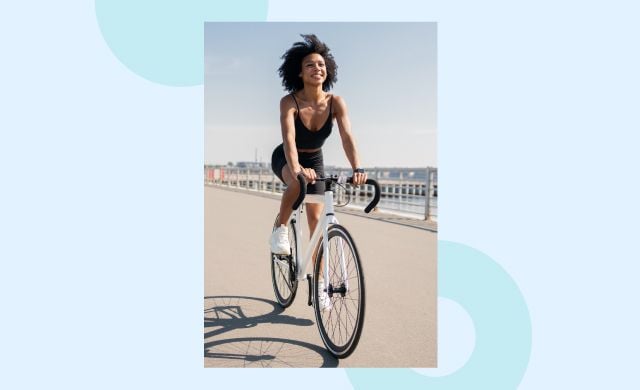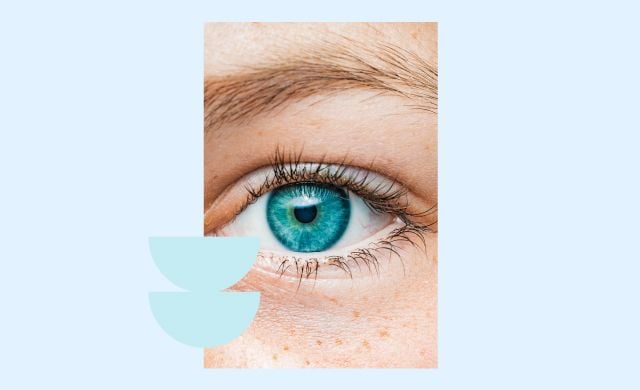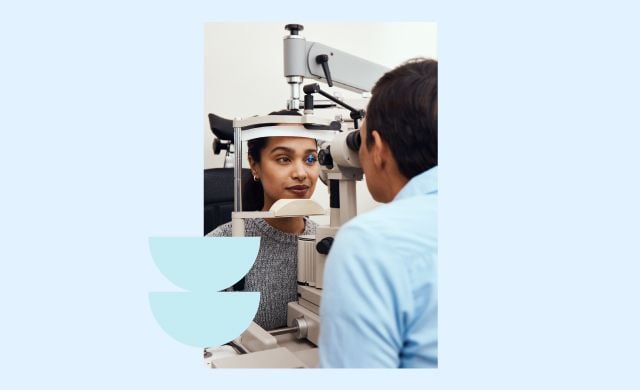Sport is an important part of most people's lives. Whether indoors or outdoors, many activities such as football, cycling, skiing and other sports can involve direct contact with the eyes. If you are interested in wearing contact lenses during your activities, there are a few things to consider. But before you start, it's important to be aware of your own eye health, as everyone's vision is different.
Contact lenses are often worn during sports to correct vision. They can have a positive effect on performance, but they need to be cared for properly. Linsenmax can help you choose the most suitable type of contact lens and advise you on care and use. That's why it's important to know the advantages of making the right choice and the disadvantages of choosing the wrong lenses.
Perform!


Contact lenses are a great option for athletes who want to improve their vision. They offer protection from the sun and glare, and can help correct vision problems such as nearsightedness and astigmatism. Contact lenses need to be cared for carefully to avoid eye infections and ensure good vision. Contact lenses are an excellent choice for sports because they provide better vision and protection than glasses.
Dry eyes
If you wear contact lenses for a long time, you may experience symptoms such as dry eyes. There are many ways to prevent this. You should talk to your optician about treatment options.
Dry eyes are caused by a lack of moisture in the tear film, which keeps the surface of your eyes lubricated. It simply means that you are not wearing contact lenses that are suitable for your vision. Properly treated, this condition can provide relief. But if left untreated, dry eye can lead to more serious problems. The severity of your dry eye depends on a number of factors, including your age, medications, and other health problems. If you have moderate to severe symptoms, you may need to see an optician.


Improving visual acuity
In most sports, the visual system plays a key role in an athlete's performance. A sports vision assessment should be carried out by a trained and experienced optician. The assessment involves a series of tests to measure the athlete's visual acuity, depth perception, light sensitivity and eye dominance.


Visual acuity refers to an individual's ability to identify objects at different distances. If an athlete wears corrective glasses or contact lenses, he or she may be able to improve visual acuity. For example, a tennis player with good visual acuity can easily see a line across the court. This type of clarity helps the athlete follow the action on the court, which improves their overall performance.
Preventing hypoxia
In sports, hypoxia is something that is known to improve performance by simulating a mountain environment, i.e. with less oxygen. But when you wear contact lenses, hypoxia can occur in other ways that are dangerous. Contact lenses are an excellent option for improving vision, but they can also cause a number of problems. One of the most common is hypoxia. A lack of oxygen in the tissues can lead to a variety of complications, including redness, swelling or blurred vision.
The best way to prevent hypoxia is to choose contact lenses that are designed to maintain corneal oxygen levels. Good oxygen levels are especially important for the cornea at night.
Hypoxia is a common complication of contact lens wear, especially in athletes. Extended wear lenses have been shown to reduce the availability of oxygen to the cornea. This is why it is even more important to choose the right contact lenses with Linsenmax.
In conclusion, wearing contact lenses during sport is becoming an increasingly popular option among athletes. Contact lenses provide clear and sharp vision, which is ideal for sporting activities. They are also very comfortable to wear and do not interfere with movement. However, it is important to take care of contact lenses and take certain precautions, as there are some risks associated with wearing them. It is recommended that you consult your optician before you start wearing contact lenses for sports.





